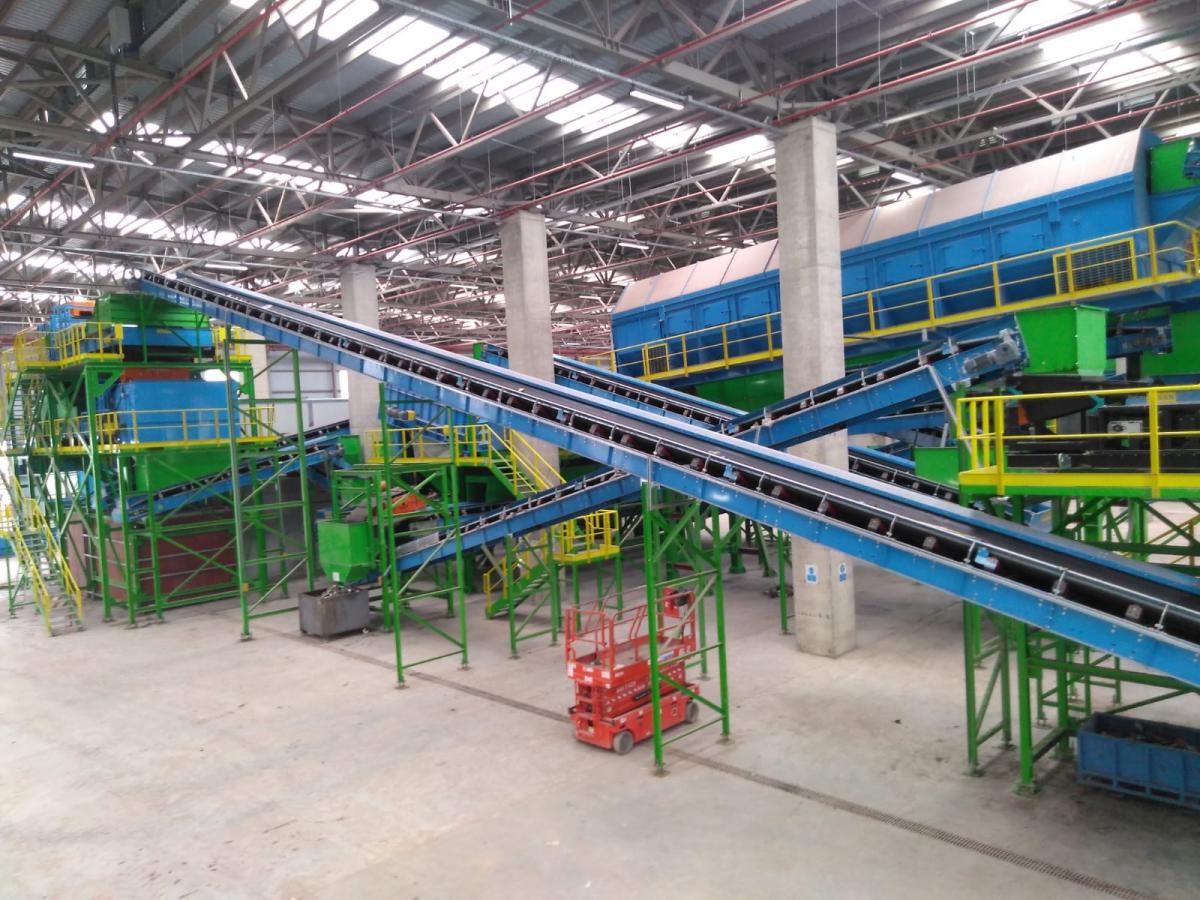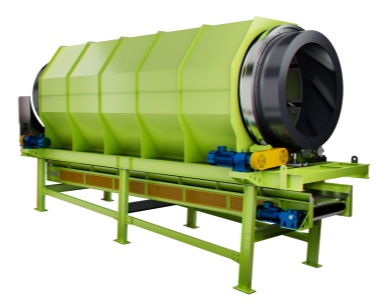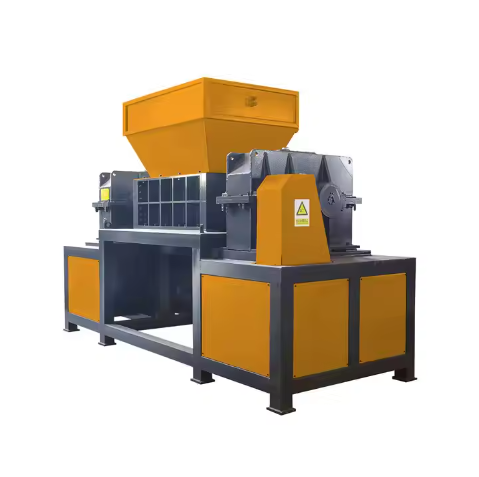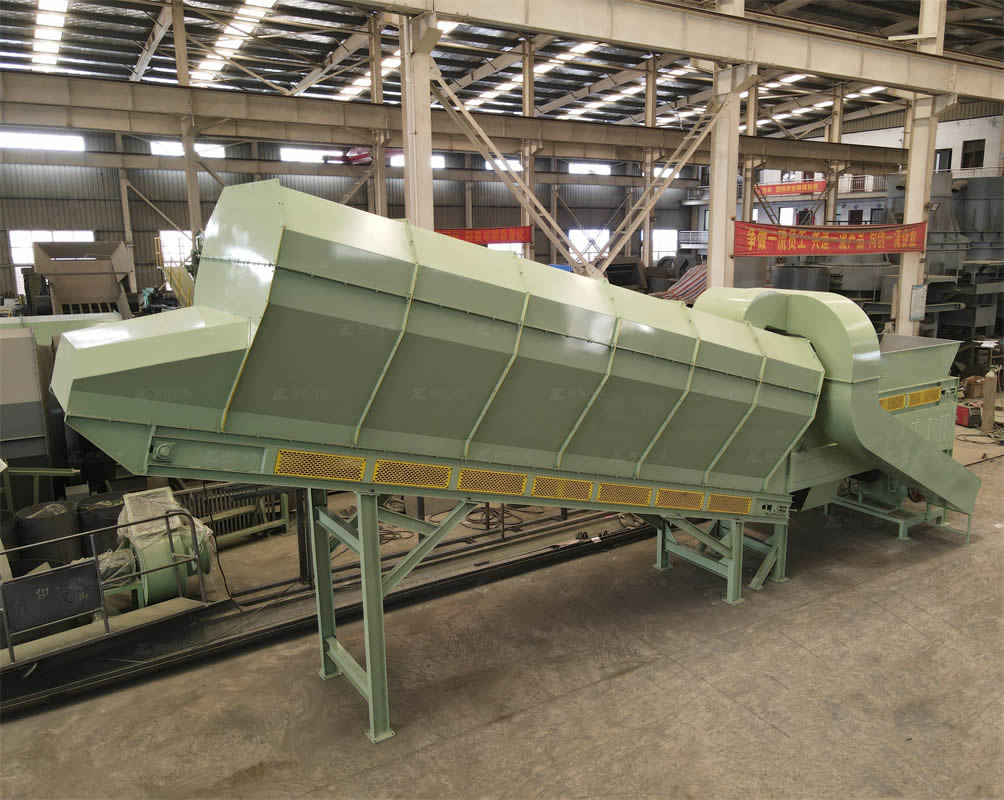MSW sorting plants
Municipal Solid Waste (MSW) Sorting Equipment: Process and Machine Planning
Municipal solid waste (MSW), commonly known as garbage or trash, consists of everyday items we use and then throw away. Effective sorting of MSW is crucial for recycling and waste reduction. This article outlines the typical process flow and machine planning for MSW sorting equipment.
Introduction
Municipal solid waste sorting systems play a vital role in managing waste sustainably. These systems typically include a series of machines designed to separate materials like paper, plastics, metals, and glass from the waste stream. Proper planning and design ensure optimal efficiency and environmental impact.

Process Flow
1. Reception and Pre-sorting
- Reception: The first step involves receiving the waste at the facility. Trucks deliver the waste to a tipping area where it is unloaded onto a conveyor belt.
- Pre-sorting: Large debris and bulky items are manually removed by workers or using automated systems to prevent damage to subsequent machinery.
2. Primary Sorting
- Screening: A screen separates the waste into different size fractions. Smaller particles fall through the screen, while larger items continue along the conveyor.
- Air Separation: Air classifiers or separators are used to blow lighter materials like paper and plastic off the conveyor, leaving heavier items like glass and metals behind.
3. Secondary Sorting
- Optical Sorting: Optical sensors are employed to identify specific materials based on color, composition, and other characteristics. These sensors can differentiate between various types of plastics, for example.
- Magnetic Separation: Magnetic separators remove ferrous metals like iron and steel from the waste stream.
4. Tertiary Sorting
- Eddy Current Separators: These devices use magnetic fields to separate non-ferrous metals such as aluminum and copper.
- Manual Sorting Stations: Workers stationed at sorting stations remove any remaining materials that were missed by the automated systems.
5. Post-processing
- Baling and Compacting: Sorted materials are compressed into bales or compacted for easier storage and transportation to recycling facilities.
- Quality Control: Final inspections are conducted to ensure the purity of the sorted materials.
Machine Planning
1. Layout Design
- Flow Optimization: The layout should be designed to minimize material handling and maximize throughput.
- Flexibility: The system should be adaptable to changes in waste composition and volume.
2. Capacity Planning
- Throughput Calculation: Determine the maximum capacity of the system based on the volume of waste processed per hour.
- Machine Selection: Choose machines that match the required throughput and processing needs.
3. Maintenance and Safety
- Regular Inspections: Schedule regular maintenance checks to ensure all machines are functioning optimally.
- Safety Protocols: Implement safety measures to protect workers from hazards.
4. Environmental Impact
- Energy Efficiency: Select energy-efficient machines and optimize processes to reduce energy consumption.
- Noise and Dust Control: Incorporate measures to control noise levels and dust emissions.
5. Future Scalability
- Modular Design: Use modular components that can be easily expanded or upgraded.
- Technological Advancements: Plan for future integration of emerging technologies like artificial intelligence and robotics.
Conclusion
Effective planning and execution of MSW sorting systems require a comprehensive understanding of the waste stream, the available technology, and the specific requirements of the facility. By following these guidelines, waste management professionals can design and implement efficient and environmentally friendly sorting processes that contribute to a sustainable future.
-
 Trommel screenTrommel screen, also known as drum screens, are widely used in various industries for sorting and separating materials.Get Quote
Trommel screenTrommel screen, also known as drum screens, are widely used in various industries for sorting and separating materials.Get Quote -
 Crop straw double shaft shreddApplications:Biomass Energy Production: Shredded straw can be used as a feedstock for bioenergy plants to produce electricity or heat.Livestock Feed: Reduced-si...Get Quote
Crop straw double shaft shreddApplications:Biomass Energy Production: Shredded straw can be used as a feedstock for bioenergy plants to produce electricity or heat.Livestock Feed: Reduced-si...Get Quote -
 Zhongcheng Air Drum SeparatorAir drum separators effectively separate lightweight materials (e.g., plastics, paper) from heavier materials (e.g., metals, glass). This high efficiency is cru...Get Quote
Zhongcheng Air Drum SeparatorAir drum separators effectively separate lightweight materials (e.g., plastics, paper) from heavier materials (e.g., metals, glass). This high efficiency is cru...Get Quote
-
2024-04-13Vibrating FeederA vibrating feeder is a mechanical device used to convey materials, typically in bulk, from one location to another in a controlled manner. This equipment is co...
-
2024-05-29Landfill stale garbage screening projectAfter communicating with our domestic customers in Shandong Province, we learned that he needed to dispose of the garbage in the landfill through excavation, sc...
-
2024-08-28Scrap rubber product shredderThe shredder of waste rubber products not only helps to reduce environmental pollution, but also improves the reuse rate of waste rubber, which is one of the im...
-
2023-01-12Waste Baler For MSWHigh density solid waste balers are the final step before sending waste to landfill. Horizontal balers designed and manufactured for this difficult job and prov...
-
2024-08-07Efficient Material Separation with Bounce ScreensThe ballistic separator is an important equipment with separation function designed for the sorting of inorganic particles in the coarsely crushed waste.



